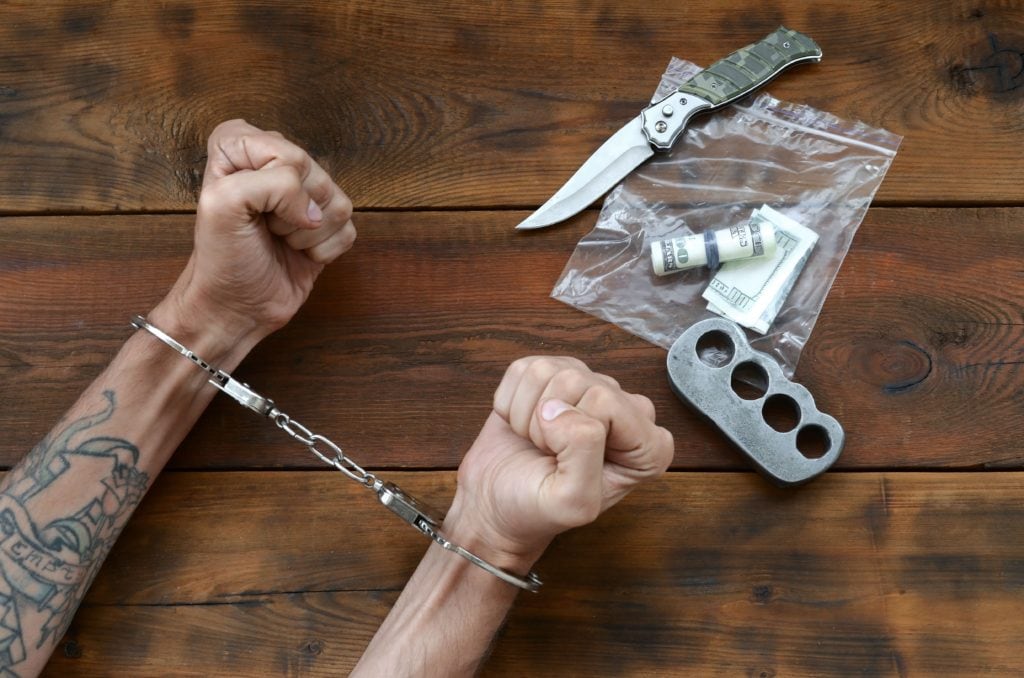Top Rated Criminal Lawyers | Call Us 24/7 AT (416) 658-1818

Section 88 of the Criminal Code makes it illegal to carry a knife. This is applicable if it can be proven beyond a reasonable doubt that the goal of the accused carrying the knife was a danger to public peace or the accused was carrying the knife to commit an offence.
The exact section sets forth that every person commits an offence who carries or possesses a weapon, an imitation of a weapon, a prohibited device or any ammunition or prohibited ammunition with intentions dangerous to public peace or for committing an offence. It is also stated that every person who commits an offence under this section is guilty of either an indictable offence and can be imprisoned for a term not exceeding ten years or of an offence punishable on summary conviction.
Section two of the Criminal Code provides a very broad definition of a weapon, broad enough to include a knife. According to it, a weapon refers to anything used, designed to be used, or intended for use in causing death or injury to any person, or for threatening or intimidating any person. Besides, this definition includes a firearm and, for the purposes of sections 88, 267 and 272, it also includes anything used, designed to be used or intended for use in binding or tying up a person against their will.
Section 88 (2) classifies the aforementioned as a hybrid offence. This suggests that based on the facts of each case, the Crown has the option to either proceed summarily or by indictment. If the Crown decides to proceed by way of indictment, the maximum penalty for possession of a weapon for a dangerous purpose is a maximum of 10 years imprisonment. If the Crown opts to proceed summarily, the maximum penalty becomes 6 months of imprisonment, a maximum fine of $5000, or both. Additionally, each of these offences may be accompanied by an order preventing you from possessing a firearm, restricted weapon, ammunition, or a prohibited weapon.
It is also possible to be charged for carrying a knife under section 89 of the Criminal Code. According to this section, every person commits an offence when they, without a lawful excuse, carry a weapon, a prohibited device, or any ammunition or prohibited ammunition while they are attending or are on their way to attend a public meeting. Every person who commits an offence under this section is guilty of an offence punishable on summary conviction.
Notably, there is a difference between sections 88 and 89 of the Criminal Code. Section 89 specifically requires your attendance at a public meeting or your way to one. Contrary to section 88, section 89 does not necessitate the Crown to prove beyond a reasonable doubt that you were intending to use the weapon in a dangerous way, or even that you had any intention of using the weapon.
Ultimately, a conviction for possession of a weapon for a dangerous purpose can have profound implications on your life and future. It could result in negative outcomes when seeking employment and can prevent you from travelling to the United States.
Carrying a knife in Canada can lead to criminal charges under Section 88 of the Criminal Code if it is determined that the knife was carried with dangerous intent or for committing an offence.
If you're facing weapons-related charges, Pyzer Criminal Lawyers can help. Our experienced Toronto defence lawyers will protect your rights and build a strong defence. Contact us today for a confidential consultation.